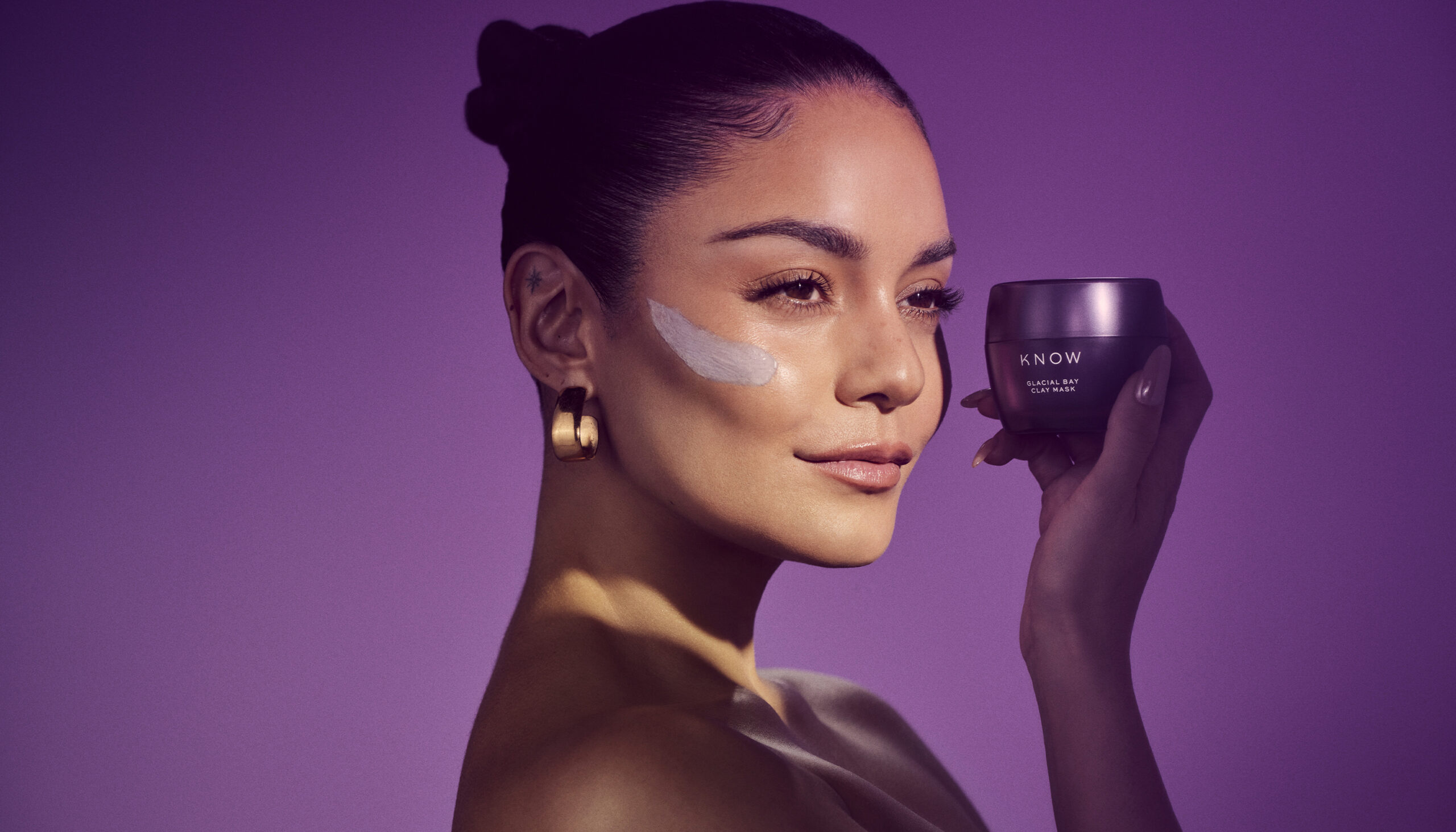Vanessa Hudgens Nude: A Comprehensive Look At The Controversy And Its Impact
Let’s be real here folks—Vanessa Hudgens has been in the spotlight for years, and not just because of her incredible talent as an actress and singer. One of the most talked-about moments in her career was when nude photos of her were leaked online. This incident sparked a massive conversation about privacy, consent, and the darker side of fame. Today, we’re diving deep into the Vanessa Hudgens nude controversy, exploring its origins, implications, and how it shaped public discourse on digital privacy. So buckle up, because this is going to be a wild ride!
Before we jump into the nitty-gritty, let’s set the stage. Vanessa Hudgens first rose to fame as Gabriella Montez in Disney’s "High School Musical," a role that catapulted her into the hearts of millions of fans worldwide. Her journey from a Disney starlet to a respected actress in Hollywood hasn’t been without its challenges. The nude photo leak was one of the biggest hurdles she faced, and it brought a lot of unwanted attention to her personal life.
Now, I know what you’re thinking—why are we talking about this? Well, the story of Vanessa Hudgens and the nude photo leak isn’t just about celebrity gossip. It’s a case study in how the internet can invade someone’s privacy and how society often reacts to such incidents. So, let’s break it down and understand the full picture.
Read also:Nicki Minaj Naked The Untold Story Behind The Viral Moments
Biography of Vanessa Hudgens
Early Life and Career
Vanessa Anne Hudgens was born on December 14, 1988, in Salinas, California. She grew up in a family that encouraged her love for the arts, and by the age of eight, she was already performing in local theaters. Her big break came when she was cast as Gabriella Montez in "High School Musical," which premiered in 2006. The film became a cultural phenomenon, launching her into the limelight and paving the way for her future career in Hollywood.
Here’s a quick rundown of Vanessa’s early life and career:
- Born on December 14, 1988, in Salinas, California
- Began performing at a young age in local theaters
- Cast as Gabriella Montez in "High School Musical" (2006)
- Starred in several films, including "17 Again" and "Sucker Punch"
Vanessa Hudgens Biodata
| Name | Vanessa Anne Hudgens |
|---|---|
| Born | December 14, 1988 |
| Birthplace | Salinas, California, USA |
| Occupation | Actress, Singer |
| Years Active | 2004–Present |
Understanding the Vanessa Hudgens Nude Photo Leak
What Happened?
Back in 2012, the internet was buzzing with news of a nude photo leak involving Vanessa Hudgens. The images, reportedly taken by her ex-boyfriend at the time, were shared without her consent and quickly went viral. This incident was a stark reminder of how easily personal information can be disseminated online, often without regard for the individual’s privacy or consent.
According to reports, the photos were initially shared on a social media platform and quickly spread across various websites. The incident sparked a massive backlash, with many criticizing the person who leaked the photos and questioning the ethics of sharing such content without permission.
Impact on Vanessa’s Career
While the nude photo leak was undoubtedly a personal nightmare for Vanessa, it also had a significant impact on her career. Many fans and critics alike questioned whether this incident would tarnish her image, especially given her roots as a Disney star. However, Vanessa proved her resilience by continuing to pursue her passion for acting and music.
In interviews, she spoke candidly about the experience, emphasizing the importance of consent and digital privacy. This openness helped her regain the trust of her fans and solidify her reputation as a strong and empowered woman in the entertainment industry.
Read also:Inside The Truth About Jules Ari Real Nude Ndash Unveiling Facts You Need To Know
The Broader Implications of the Nude Photo Leak
A Wake-Up Call for Digital Privacy
The Vanessa Hudgens nude photo leak was more than just a celebrity scandal. It served as a wake-up call for everyone about the importance of digital privacy. In today’s digital age, where personal information can be shared with a single click, it’s crucial to be mindful of what we post online and who has access to it.
Experts in digital security have since highlighted the need for stronger privacy laws and better education on how to protect personal data. The incident also prompted discussions about the role of social media platforms in preventing the spread of unauthorized content.
The Role of Consent in Digital Media
Consent is a fundamental aspect of any relationship, and this principle extends to the digital realm. The nude photo leak involving Vanessa Hudgens highlighted the importance of obtaining explicit consent before sharing any intimate content. It’s a lesson that applies not just to celebrities but to everyone who uses digital platforms.
As society continues to grapple with issues of privacy and consent, it’s essential to foster a culture of respect and understanding. This means holding individuals and platforms accountable for their actions and promoting a more ethical approach to digital communication.
Vanessa’s Response to the Controversy
Speaking Out
In the aftermath of the nude photo leak, Vanessa Hudgens chose to address the issue head-on. In interviews, she spoke openly about the experience, emphasizing the importance of consent and the need for greater awareness of digital privacy. Her honesty and vulnerability resonated with many fans, who appreciated her willingness to tackle such a sensitive topic.
“It’s not just about me,” Vanessa said in one interview. “It’s about everyone who has ever had their privacy violated in this way. We need to have these conversations and make sure people understand the consequences of their actions.”
Moving Forward
Despite the challenges she faced, Vanessa Hudgens continued to thrive in her career. She starred in several successful films, including "Spring Breakers" and "The Princess Switch," and released music that showcased her growth as an artist. Her ability to overcome adversity and remain focused on her passions is a testament to her strength and resilience.
For Vanessa, the nude photo leak was a painful experience, but it also became an opportunity to advocate for change. By speaking out and sharing her story, she helped bring attention to important issues affecting millions of people around the world.
Public Reaction and Media Coverage
The Initial Backlash
When the nude photos of Vanessa Hudgens were leaked, the initial reaction from the public was mixed. Some condemned the person responsible for the leak, while others criticized Vanessa for taking the photos in the first place. This dichotomy highlighted the complex nature of public discourse surrounding issues of privacy and consent.
Media outlets played a significant role in shaping the narrative, with some focusing on the salacious details of the story and others emphasizing the broader implications for digital privacy. The coverage sparked a heated debate about the ethics of reporting on such incidents and the responsibility of journalists to prioritize accuracy and sensitivity.
Changing Perceptions
Over time, public perception of the Vanessa Hudgens nude photo leak began to shift. As more people became aware of the importance of consent and digital privacy, the conversation evolved from one of blame to one of empathy and understanding. This shift was reflected in the media, which increasingly focused on the broader implications of the incident rather than just the scandal itself.
Vanessa’s willingness to speak openly about her experience also helped change the narrative. By framing the incident as a call to action rather than a personal failing, she inspired others to join the conversation and advocate for change.
The Legal and Ethical Dimensions
Legal Ramifications
In the wake of the Vanessa Hudgens nude photo leak, there were calls for stronger legal protections for victims of unauthorized content sharing. While laws vary by jurisdiction, many countries have since enacted or strengthened legislation aimed at addressing this issue. These laws typically focus on penalizing individuals who share intimate content without consent and providing recourse for victims.
Legal experts emphasize the importance of education and awareness in preventing such incidents. By understanding the legal consequences of sharing unauthorized content, individuals can make more informed decisions about their online behavior.
Ethical Considerations
Beyond the legal implications, the nude photo leak also raised important ethical questions. What responsibilities do individuals have when it comes to respecting others’ privacy? How should society respond to incidents of unauthorized content sharing? These questions are at the heart of the broader conversation about digital ethics.
As we navigate the complexities of the digital age, it’s crucial to prioritize empathy and understanding in our interactions with others. This means respecting boundaries, obtaining consent, and holding ourselves accountable for our actions.
Lessons Learned from the Vanessa Hudgens Nude Photo Leak
The Importance of Consent
One of the most significant takeaways from the Vanessa Hudgens nude photo leak is the importance of consent. Whether in personal relationships or digital communications, obtaining explicit consent is essential to fostering trust and respect. This principle applies not just to intimate content but to all forms of personal information shared online.
By prioritizing consent, we can create a safer and more ethical digital environment for everyone. This means being mindful of what we share and who we share it with, as well as respecting others’ privacy and boundaries.
Advocating for Change
The nude photo leak also highlighted the need for advocacy and education on issues of digital privacy and consent. By speaking out and sharing her story, Vanessa Hudgens helped bring attention to these important topics and inspire others to join the conversation. Her resilience and determination in the face of adversity serve as a powerful example for anyone who has experienced a similar situation.
As we move forward, it’s essential to continue advocating for change and promoting a culture of respect and understanding. This means supporting legislation that protects victims of unauthorized content sharing, educating others about the importance of consent, and holding individuals and platforms accountable for their actions.
Conclusion: Where Do We Go from Here?
In conclusion, the Vanessa Hudgens nude photo leak was a pivotal moment in the ongoing conversation about digital privacy and consent. While it was undoubtedly a painful experience for Vanessa, it also became an opportunity to advocate for change and promote greater awareness of these important issues.
As we continue to navigate the complexities of the digital age, it’s crucial to prioritize empathy, respect, and understanding in our interactions with others. By learning from the lessons of the past and working together to create a safer and more ethical digital environment, we can ensure that everyone’s privacy and dignity are respected.
So, what can you do? Start by educating yourself and others about the importance of consent and digital privacy. Support legislation that protects victims of unauthorized content sharing, and hold individuals and platforms accountable for their actions. Together, we can make a difference and create a better future for everyone.
And don’t forget to share this article with your friends and family. The more people we reach, the greater the impact we can have. Let’s keep the conversation going and work toward a world where everyone’s privacy and dignity are respected. Thanks for reading, and until next time—stay safe out there!
Table of Contents
- Biography of Vanessa Hudgens
- Early Life and Career
- Vanessa Hudgens Biodata
- Understanding the Vanessa Hudgens Nude Photo Leak
- Impact on Vanessa’s Career
- The Broader Implications of the Nude Photo Leak
- A Wake-Up Call for Digital Privacy
- The Role of Consent in Digital Media
- Vanessa’s Response to the Controversy
- Speaking Out
- Moving Forward
- Public Reaction and Media Coverage
- The Initial Backlash
- Changing Perceptions
- The Legal and Ethical Dimensions
- Legal Ramifications
- Ethical Considerations
Article Recommendations



